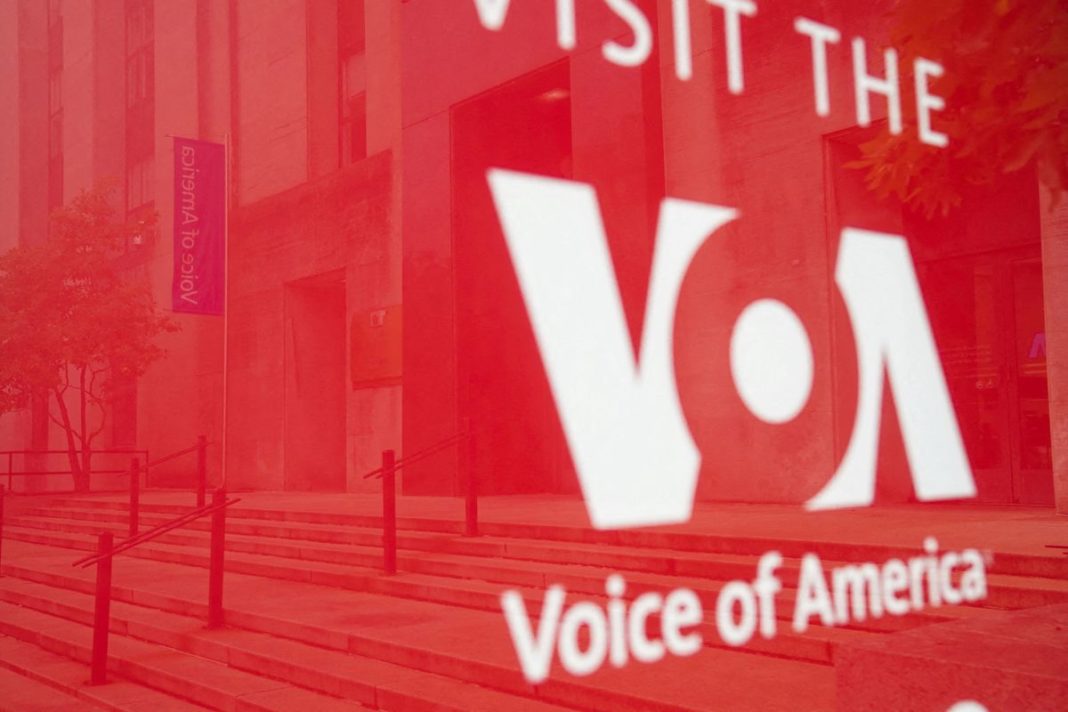« The ban came after the websites failed to apply for licenses that would allow government to oversee their content » reports Andrew Wilks in Al-Monitor.
The Turkish broadcasting authority has blocked two international news sites in a move condemned as another step to silence the independent press ahead of looming elections.
The websites of German public broadcaster Deutsche Welle (DW) and the US state-run Voice of America (VOA), both of which publish news content in Turkish, went down on the night of June 30.
In February the broadcasting watchdog Radio and Television Supreme Council (RTUK) called on the two as well as France-based Euronews to apply for licenses to operate in Turkey.
The banning order, which applies to VOA’s Turkish website and all of DW’s sites published in 32 languages, was issued by an Ankara court at the RTUK’s request after the broadcasters failed to submit license applications.
“In our extensive correspondence, as well as in personal conversations with the head of the media monitoring agency, we explained why DW cannot apply for such a license, » DW director Peter Limbourg said in a statement July 1. “For example, licensed media in Turkey is obliged to delete online content that RTUK considers inappropriate. This is unacceptable for an independent media organisation.”
DW is planning legal action against the access ban.
“We oppose this move as a thinly veiled effort to censor unfavorable press coverage,” said acting VOA director Yolanda Lopez.
RTUK chair Ebubekir Sahin tweeted that the decision by the “independent judiciary” showed the board “protects the rights of legal broadcasters against illegal broadcasters in our country.”
In a statement, RTUK added, “There is no need for anyone to balk at or be unnecessarily worried about freedom of expression and the press and to make statements that would implicate our Supreme Council, which is doing its job on legal grounds.”
It said access to the sites could be restored if VOA and DW apply for licenses.
Under regulations passed in 2019, RTUK is authorized to oversee online radio and television broadcasts, adding to its powers to penalize TV stations with bans and allocate commercially vital public advertising to newspapers.
Many observers have said the council has used its powers to target outlets critical of the government.
Digital platforms must secure a license if they carry on-demand video or audio content and, under the terms of the new regulations, must remove content deemed inappropriate by RTUK.
Ilhan Tasci, a RTUK member from the opposition Republican People’s Party, said the timing of the ban on VOA and DW appeared to be political, coming immediately after a NATO summit where Turkish President Recep Tayyip Erdogan met US President Joe Biden.
“Anti-democratic practices will manifest themselves by increasing and becoming more evident, especially in this process leading up to the elections,” he told the BBC’s Turkish service.
Presidential and parliamentary elections are due to be held by June next year. Erdogan, who has held power for two decades, faces falling popularity ratings amid an economic crisis that has seen annual inflation approach 80%.
The New York-based Committee to Protect Journalists was among international groups to condemn the blocks. Gulnoza Said, its Europe and central Asia program coordinator, called them “the latest attempt to silence critical media as the country prepares to hold elections next year, » adding, “Turkish authorities should reverse the blocks on the broadcasters’ websites at once and allow all media outlets to operate freely.”
The Journalists Union of Turkey described the blocks as “clearly censorship” and demanded, “Stop trying to ban anything you don’t like. This society wants freedom!”
Turkey is ranked 149th out of 180 countries in Reporters Without Borders’ World Press Freedom Index. Most mainstream media outlets are controlled by business figures with close ties to the government, leaving online outlets and social media as the remaining sources of independent news.
Fresh legislation on social media — labelled a “censorship bill” by critics — is in the pipeline and will be presented to parliament after the summer.
The draft “disinformation bill” allows for jail sentences of up to three years for those who “disseminate information that misleads the public” about public health, public order or internal and external security. It also gives new powers to the courts to hit online media outlets with financial penalties.
Turkey is also among the world’s leading jailers of journalists and has been frequently criticized by Western governments and rights groups over its wider human rights record.
Some suggest the blocks on DW and VOA could backfire. Oliver Linow, an internet freedom specialist at DW, tweeted that there had been a sharp rise in Google searches for the German broadcaster immediately after the ban and noted that the ban was easy to circumvent.
Having faced previous bans on YouTube, Wikipedia and Twitter, many Turks are well versed in using virtual private networks to sidestep internet blocks.
Al-Monitor, July 5, 2022, Andrew Wilks, Photo/Sarah Silbiger/Reuters

